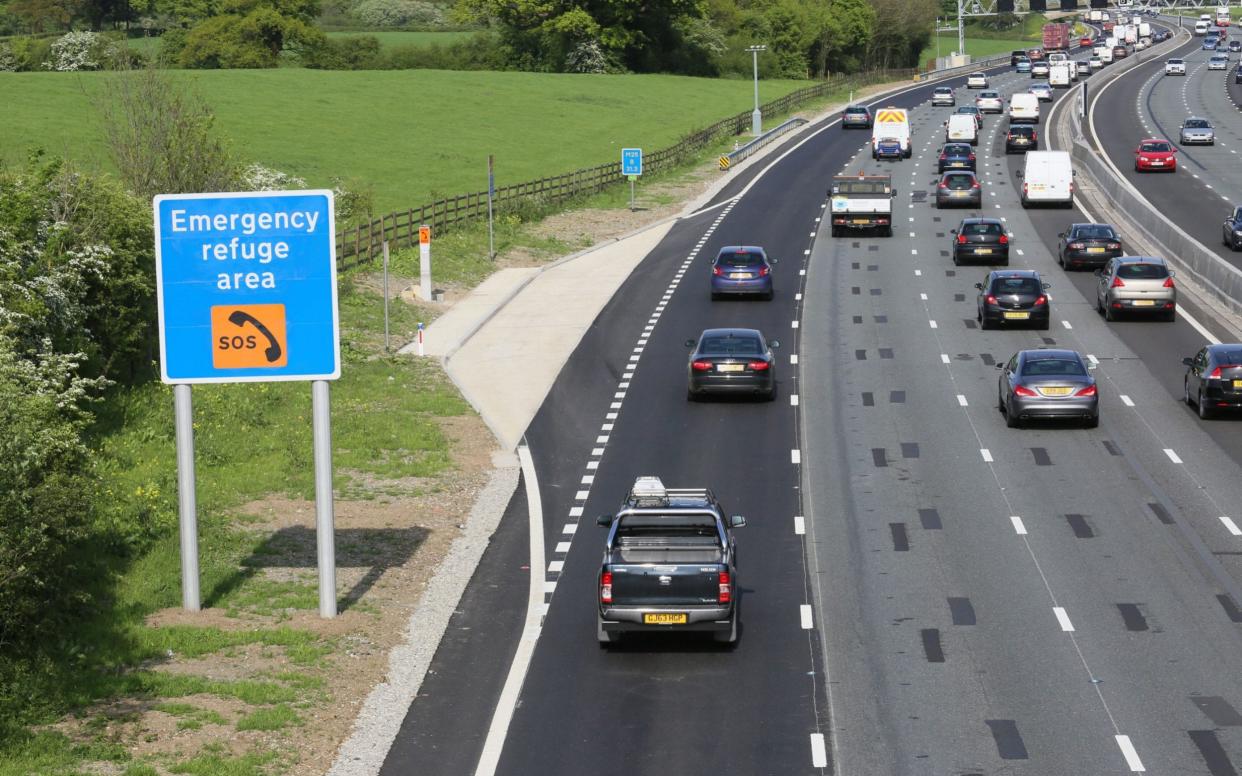No new smart motorways unless they can detect stranded motorists in live lanes

No more new smart motorways will be built if they do not have radar technology to spot broken down vehicles, Highways England has announced.
The Government-owned company has also said “retrofitting” Stopped Vehicle Detection (SVD) systems to the existing routes where the hard shoulder has been turned into a live lane will be brought forward by six months.
Grant Shapps, the Transport Secretary, had ordered a March 2023 deadline for SVD to cover the entire network, but Highways England has now pledged to complete the system by September next year.
But relatives of those killed on ‘all lane running’ smart motorways, road safety campaigners and politicians last night criticised the move as “too little too late”. The report comes after four coroners have warned more motorists stranded in live lanes will die because the hard shoulder has been scrapped.
In its progress report, Highways England insisted smart motorways are “the safest roads in the country”, stating the number of fatalities per distance driven is a third higher on conventional motorways than ALR motorways.
But, it said 15 people were killed on all smart motorways in 2019, up from 11 in 2018.
Claire Mercer, whose husband Jason Mercer died on the M1 in June 2019, said: “This is people looking at their own subject and coming to the same conclusions. I fear Mr Shapps hasn’t got the strength to stand up for the public and their safety. Bringing back the hard shoulder is the only way to make smart motorways truly smart.”

Huw Merriman, chairman of the transport select committee, said its 2016 report saw Highways England promise to roll out SVD systems “going forward”.
He added: “The safety enhancements and reassurances given to us by Highways England in 2016, and in subsequent years, do not appear to have been delivered in full.
"For example, in 2016 we were told that stopped vehicle detection technology would be introduced ‘going forward’ for new Smart Motorways and would be retrofitted for the stretches of Smart Motorway already in place.
"To hear this same commitment today, five years after it was first suggested, begs the question as to why these safety enhancements haven’t been made more quickly.”
In a written statement to Parliament, Mr Shapps said that for every hundred million miles driven on smart motorways there were fewer deaths compared to conventional motorways.
He added: “Despite the data showing that fatalities are less likely on All Lane Running motorways than on conventional ones, this doesn’t mean all drivers necessarily feel safe on them.
“That is why I tasked Highways England last year with delivering an action plan to raise the bar on safety measures even higher. This progress report shows the extensive work already carried out, but we want to do more.”
Highways England’s acting chief executive Nick Harris said: “We’ve made good progress delivering the improvements set out in the 2020 stocktake, but we are not complacent and are examining ways to improve safety further.”

 Yahoo News
Yahoo News 
